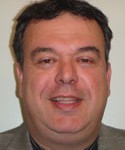By Micha Shalev
If you are reminded of your childhood when you hear song lines such as, “It’s the story of a lovely lady” or “You are my sunshine,” you can understand the power of musical memory. Songs tell the stories of our lives. They remind us of a special day, a good time, a first love and even a favorite car.
 You can’t summon inspiration with a flick of the radio dial, or a tap on your iPod. But music can set the stage for creativity. Certain types of sounds can stimulate alpha waves in an elderly brain, which normally occur when a person is close to sleep. The relaxed sensations created by alpha waves can lower a person’s mental barriers and help him or her to see new connections and possibilities.
You can’t summon inspiration with a flick of the radio dial, or a tap on your iPod. But music can set the stage for creativity. Certain types of sounds can stimulate alpha waves in an elderly brain, which normally occur when a person is close to sleep. The relaxed sensations created by alpha waves can lower a person’s mental barriers and help him or her to see new connections and possibilities.
Music therapy holds promise for dementia/Alzheimer’s sufferers with behavioral disorders or people who have movement disorder.
It is a scientific fact that music is one of our most persistent memories and indeed can enhance and help in the recall of people, places and events. Oliver Sacks, a neurologist and author of the book, Musicophilia: Tales of Music and the Brain, details how music is stored in the brain. His studies reveal the music style and tunes we learn and love in our teens and early 20s remain our favorites throughout our lives. These tunes are most closely linked to our memories.
You Are My Sunshine is a song that can bring so much joy to any long-term care community. It is rare to find a song that activity directors can conduct the whole morning stretch program to.
Experiment with using music to spur a loved-ones creative juices by remembering these guidelines:
•Don’t play music nonstop. It may distract a person when he or she needs to focus attention on details. The best time is usually the mid-afternoon, to get through the post-lunch energy slump.
•Choose the right music. What’s right? That depends on the person’s tastes and current physical and/or mental condition. Research finds that classical music of the baroque style relaxes the mind and makes a person more receptive to a unique activity program and care approach.
•Be patient. Just turning on a song won’t instantly turn a person into a fully alert and oriented individual. Feed his or her mind in other ways — with art or games. And make sure the person gets sufficient rest so that he or she is ready and able to be creative when the time is right or during the activity program.
The power of the musical memory is so strong that for a brief moment a loved-one can leave their anxiety, confusion and pain behind — a fact confirmed by The National Institute of Nursing Research which found music can reduce stress and pain levels. The National Institute of Education and Health Sciences reported music tempo can improve mood and heart rate — a fact well known by everyone who has ever felt a bit down and turned on a radio to lighten their spirits.
Musical tastes and selections may be misunderstood between the generations but the power of music crosses all age groups.
I have always known that music can open hearts. Through my personal experience, I have seen how it can also open minds.
Micha Shalev, MHA, is the owner of Dodge Park Rest Home at 101 Randolph Road, Worcester. He can be reached at 508-853-8180 or by e-mail at m.shalev@dodgepark.com or view more information online at www.dodgepark.com. Archives of articles from previous issues can be read at www.fiftyplusadvocate.com.












